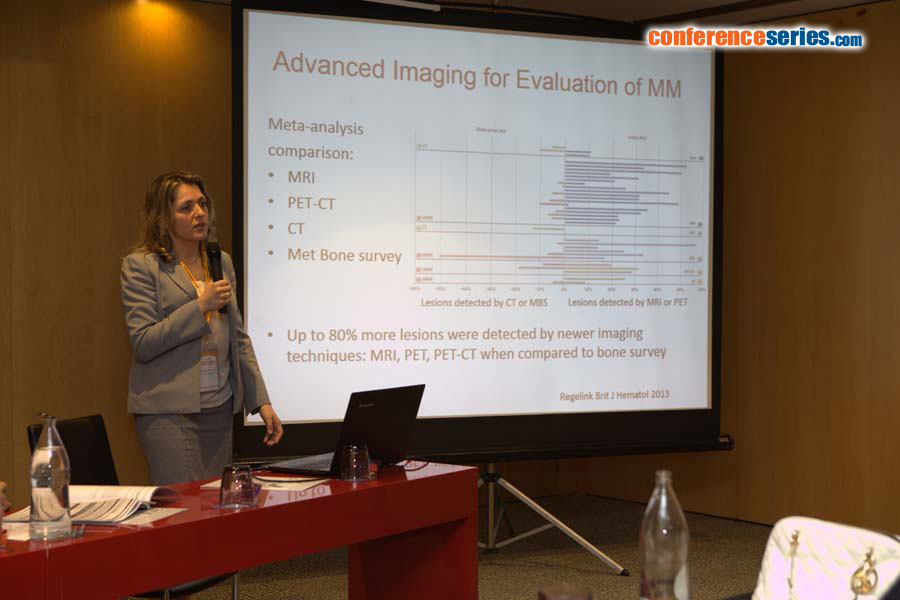
Natalia Neparidze
Yale School of Medicine, USA
Title: Whole body magnetic resonance imaging in newly diagnosed multiple myeloma: Influence on treatment decisions
Biography
Biography: Natalia Neparidze
Abstract
Advanced imaging modalities are being increasingly utilized for initial evaluation in patients with multiple myeloma. Whole body magnetic resonance imaging (WB-MRI) is far superior to standard metastatic bone survey (MBS), and may even outperform positron-emission tomography (PET). We performed both baseline MBS and WB-MRI on 15 myeloma patients prior to initiation of therapy. Multi-planar, multi-sequence MRI of the whole body was acquired without intravenous contrast. The imaging studies were evaluated to determine their respective merits for disease staging and their impact on treatment decisions. WB-MRI detected myeloma lesions in 33% of patients (5/15), whereas MBS identified lesions in only 6% (1/15). Overall, information obtained from WB-MRI significantly influenced the patient’s staging in 73% of patients (11/15), and directly impacted treatment decisions whether or not to begin induction therapy in 46% of patients (7/15). WB-MRI identified myeloma bone lesions, which otherwise would have been missed by standard bone survey in 27% of patients (4/15). Myeloma related bone lesions occurred predominantly in the axial skeleton, most commonly seen in cervical, thoracic, lumbar spine and pelvis. We conclude that WB-MRI at diagnosis provides valuable information on the extent and the stage of the disease, significantly influences treatment decisions and is worth to be incorporated in initial diagnostic evaluation of patients with multiple myeloma.
Speaker Presentations
Speaker PPTs Click Here





